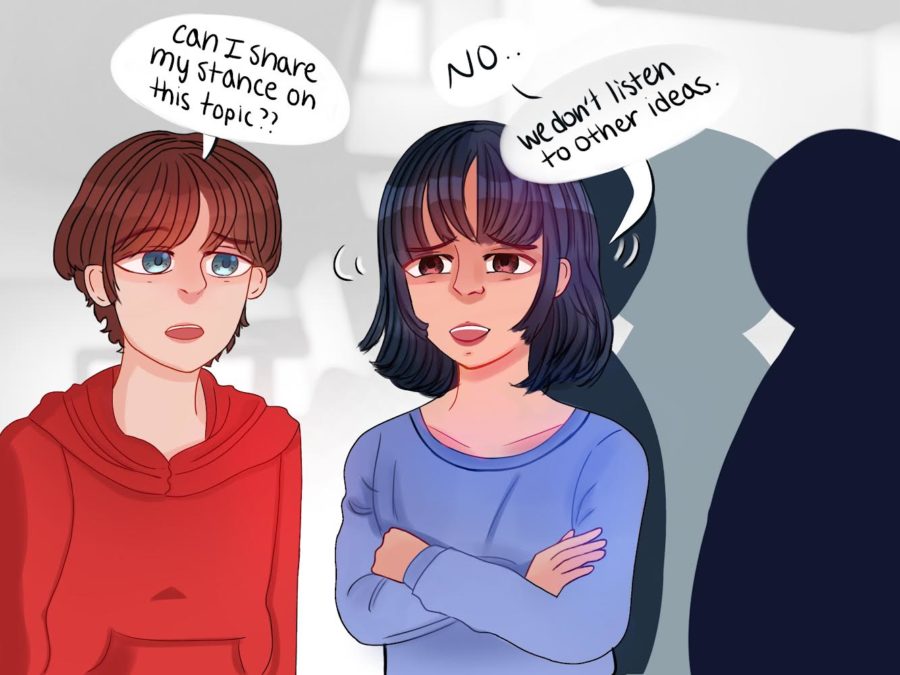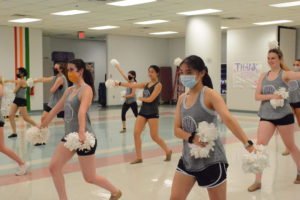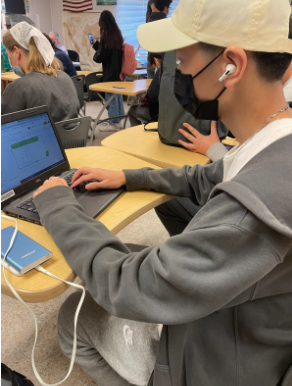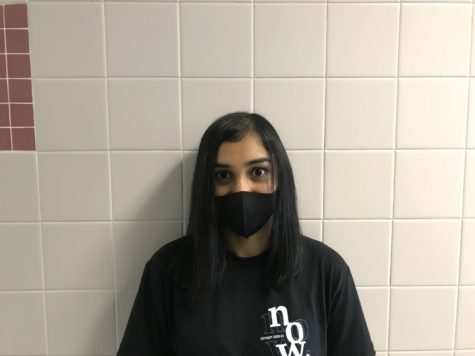Different political views must be respected
Illustrated by Rachel Neathery
As Fairfax County is 70% democratic, many conservative students face ridicule for their beliefs.
January 9, 2022
Though our community prides itself on embracing the right to free speech, students have become increasingly insensitive towards those with different political views—specifically conservative ones.
“I’ve had students share with me that sometimes there is a level of fear in sharing their views, even with friends, because sometimes the response they get is disrespectful or what other people might call bullying,” Young Republicans sponsor and Lieutenant Colonel Tim Lambert said. “That concerns me because that will discourage students from feeling comfortable sharing their views.”
According to Assistant Principal Amy Parmentier, a group of students recently tore down flyers depicting the Young Republicans’ club interest meeting.
“As a political organization in the school, we believe that everyone should have the right to express their own opinions,” senior and Young Democrats board member Cole Jencks said. “People’s signs shouldn’t get taken down, even if your opinion doesn’t match theirs.”
While clubs like Young Democrats and JEDI expressed support for the Young Republicans’ right to meet and even offered to help put back the flyers, the incident was a violation of students’ rights to openly share information.
“As a group, our commitment is to make our school a place where everyone feels seen and heard,” Parmentier said. “While we all have differences of opinion, we don’t want to shut down other people’s expression because I think that inhibits our community.”
Much of the animosity toward conservative people in Fairfax County can be attributed to America’s increasingly polarized political climate. As of 2020, Fairfax County was 70% Democratic according to bestplaces.net. It’s clear that the divide between political parties has deepened significantly over time. The percentage of Americans with consistently democratic or republican views doubled over the past two decades, from 10% to 21%, according to Pew Research Center.
The real issue, though, is affective polarization—a phenomenon studied by Brown University which describes the negative attitudes of party members to other political groups. According to the study, Americans have reported consistently negative opinions of their opposing party for decades.
“Increasing polarization is of no help to the country since it’s causing us to lose the ability to compromise,” senior Ritika Venkatesh said. “I wish people were less judgemental of other perspectives, not just politically but in our personal lives.”
With mostly liberal students, there has been an increase in group polarization, where those with similar ideas feed off each other to solidify their preexisting views.
Though teachers try not to impart their own views, some may inadvertently reveal their political ideas and hinder open discussion. When students who support Republican candidates or have conservative views on controversial issues are too afraid to speak up, the only ideas in circulation are of the same ideology, furthering the issue. Without anyone to challenge an idea or advocate for an opposing viewpoint, students inhibit themselves from exposure to new ideas and perspectives.
“We can’t expect our generation to become mature and well-developed human beings while encouraging them to surround themselves with only people [who agree with them],” Venkatesh said. “We’re minimizing the ability to understand and deal with those different from us, in turn creating a future for our country that is even more inefficient, divisive and volatile.”
The terms Democrat and Republican or liberal and conservative are no longer just a label for political views, but instead a label for an individual—and it’s one that can be detrimental to free speech. Respecting another student’s ideas doesn’t require that you conform to their opinions or change your viewpoints. All it entails is for students to not ridicule others or categorize each other as inferior due to their beliefs.
“All students have the right to free speech and to express their views on one side of an issue or another, not to agree, but hopefully to respectfully engage and discuss the issue,” Lambert said. “[Students should] encourage each other to respect different viewpoints, and if you see somebody attacking someone verbally, encourage them that that’s not the right way to do it. Hopefully, this will lead to a productive dialogue between people who have different viewpoints.”







